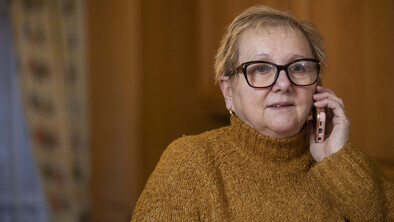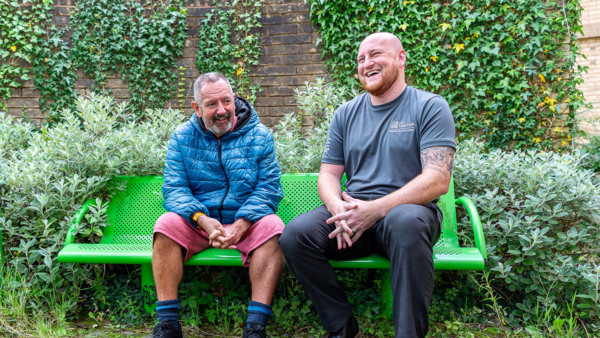Extra cancer screenings for people with dense breasts
It has been reported in the news recently that extra cancer screenings could detect early cases of breast cancer in dense breasts. In this blog, we try and answer some of the questions people might have about the story.
Dense breasts and cancer screening
There have been recent reports in the news about additional cancer screening for people with dense breasts. This story is a response to a study led by Cambridge University that found that extra scans for some patients could identify early-stage cancers that may not appear during regular mammograms (breast x-rays).
We understand people who see this news story may have questions about what this means. In this blog, we answer some of the most common questions people might have about dense breasts and cancer screening.
If you would like to know more about the study, you can read about it on the Cambridge University website.
How do I know if I have dense breasts?
Dense breasts are not something you or your doctor can feel or detect with a clinical or self-examination. Only a mammogram can tell if someone has dense breasts. A mammogram is a low-dose x-ray of the breast. It is done by a radiographer and usually offered to people over the age of 40. We have more information about having a mammogram.
Who should I speak to if I have dense breasts?
If you have had a mammogram and been told you have dense breasts, the best person to speak to is your GP. They will be able to help you understand what this means, your breast cancer screening options, and answer any questions you have.
How do I have a screening for breast cancer?
Breast screening is offered to anyone who is registered as female with their GP, and aged between 50 and 70 as part of the NHS Breast Screening Programme. If you are over 70, you can self-refer through your GP.
You will automatically be invited for your first breast screening between the ages of 50 and 53. You will then be invited every 3 years until you turn 71.
The Breast Screening Programme may help find cancer early, which improves someone’s chance of survival.
We have some general information about cancer screening. There is more detailed information about breast screening and making decisions on the following websites:
Information and support for people who have breast cancer
If you are worried about breast cancer, have been recently diagnosed, or are having, or recently finished treatment, Macmillan is here to support you.
We have information about:
- Symptoms of breast cancer
- Causes of breast cancer
- Treatment for breast cancer
- What to expect after breast cancer treatment
You may also find it helpful to talk to someone. You can:
- Call the Macmillan Support Line for free on 0808 808 00 00.
- Chat to our specialists online.
- Visit our breast cancer forum to talk with people who have been affected by breast cancer, share your experience, and ask an expert your questions.
About our information
This information has been written by our senior medical editors and revised and edited by the Digital Content Team.
Learn more about how we produce our cancer information.
Read more
-
Blogs 20 Mar 2023If you are having difficulties contacting your doctors to make a GP appointment, there are other ways to get help.
-
Blogs 05 Nov 2024The Black Country Community Connectors project has been formed to address the poor cancer experiences and outcomes that continue to affect people from Black and minority ethnic communities.
-
Blogs 26 Feb 2025The CRT Together project is helping people in Welsh ex-mining communities affected by cancer access practical, financial, and emotional support.





